



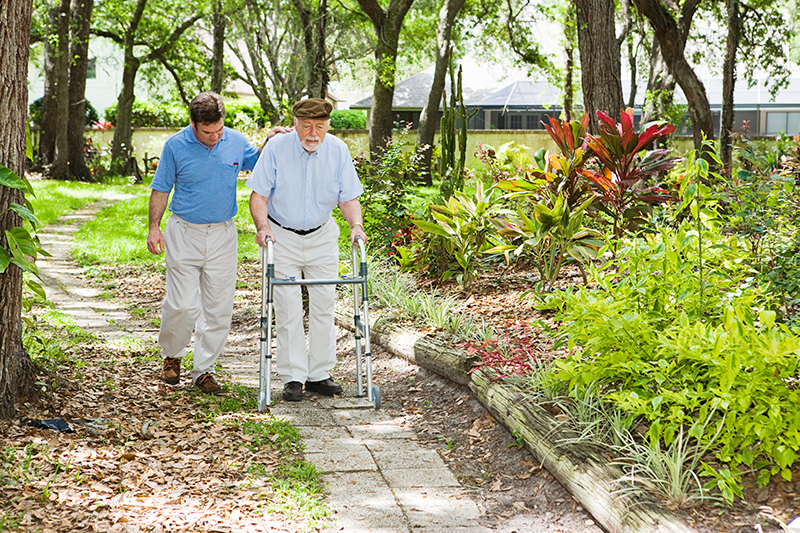
When supporting health and well-being for individuals in care home settings, you must understand:
Wrth gefnogi iechyd a llesiant unigolion mewn cartrefi gofal, rhaid i chi ddeall y canlynol:

There are various health conditions that are associated with ageing listed below.
Dementia is an overall term that describes a group of symptoms associated with a decline in memory or other thinking skills severe enough to reduce a person’s ability to perform everyday activities. Individuals with dementia decline in mental ability, severe enough to interfere with daily life, such as memory loss, communication, visual perception, language issues etc. Alzheimer's is the most common type of dementia.
A stroke is caused when the brain is attacked and the blood flow to an area of the brain is cut off and therefore deprived of oxygen. The brain cells then begin to die.
When brain cells die during a stroke, abilities controlled by that area of the brain such as memory and muscle control are lost.
How a person is affected by their stroke depends on where the stroke occurs in the brain and how much the brain is damaged. For example, someone who had a small stroke may only have minor problems such as temporary weakness of an arm or leg.
Sensory impairment is when one of your senses; sight, hearing, smell, touch, taste and spatial awareness, is no longer normal. This may include having difficulty seeing or blindness, being hard of hearing or being completely deaf.
As individuals age, the likelihood of bladder issues and incontinence increases. Incontinence is the unintentional passing of urine. This can be caused by many factors, one being stress incontinence.
Stress incontinence is when the pressure inside the bladder as it fills with urine becomes greater than the strength of the urethra to stay closed. This is brought about by issues such as: damage during childbirth, neurological conditions and many medications etc.
Another type of incontinence is overflow incontinence, also called chronic urinary retention and is often caused by a blockage or obstruction of the bladder.
There may also be psychological conditions associated with incontinence, this may include depression and dementia.
Rhestrir amrywiaeth o gyflyrau iechyd sy'n gysylltiedig â heneiddio isod.
Dementia yw'r term cyffredinol sy'n disgrifio grŵp o symptomau sy'n gysylltiedig â dirywiad yn y cof neu o ran sgiliau meddwl eraill sy'n ddigon difrifol i leihau gallu person i ymgymryd â gweithgareddau dyddiol. Mae gallu meddyliol unigolion â dementia yn dirywio'n ddigon difrifol i ymyrryd â bywyd bob dydd, er enghraifft, colli cof, y gallu i gyfathrebu, canfyddiad gweledol, problemau ag iaith ac ati. Clefyd Alzheimer yw'r math mwyaf cyffredin o ddementia.
Caiff strôc ei achosi pan ymosodir ar yr ymennydd ac y caiff llif y gwaed i ran o'r ymennydd ei atal, gan ei amddifadu felly o ocsigen. Wedyn, bydd celloedd yr ymennydd yn dechrau marw.
Pan fydd celloedd yr ymennydd yn marw yn ystod strôc, caiff y galluoedd a reolir gan y rhan honno o'r ymennydd, fel y cof a rheolaeth dros y cyhyrau, eu colli.
Bydd effaith strôc ar berson yn dibynnu ar leoliad y strôc yn yr ymennydd a faint o niwed a wneir i'r ymennydd. Er enghraifft, mae'n bosibl mai dim ond mân broblemau y bydd rhywun sydd wedi cael strôc fach yn eu cael, fel gwendid dros dro yn y fraich neu'r goes.
Ystyr nam ar y synhwyrau yw pan na fydd un o'ch synhwyrau; golwg, clyw, arogl, cyffyrddiad, blas ac ymwybyddiaeth ofodol, bellach yn gweithredu yn y ffordd arferol. Gall hyn gynnwys anawsterau wrth weld neu ddallineb, bod yn drwm eich clyw neu'n gwbl fyddar.
Wrth i unigolion heneiddio, mae'r tebygolrwydd y byddant yn cael anawsterau â'r bledren ac anymataliaeth yn cynyddu. Ystyr anymataliaeth yw pasio wrin yn anfwriadol. Gall sawl ffactor ei achosi, gan gynnwys anymataliaeth straen.
Ystyr anymataliaeth straen yw pan fydd y pwysedd y tu mewn i'r bledren wrth iddi lenwi ag wrin yn uwch na chryfder yr wrethra i aros ar gau. Gall ddeillio o sawl ffactor, fel: niwed wrth eni plentyn, cyflyrau niwrolegol a llawer o feddyginiaethau ac ati.
Math arall o anymataliaeth yw anymataliaeth gorlif, y cyfeirir ato hefyd fel dargadw wrinol cronig ac fe'i hachosir yn aml gan ataliad neu rwystr yn y bledren.
Gall fod cyflyrau seicolegol hefyd sy'n gysylltiedig ag anymataliaeth, gan gynnwys iselder a dementia.
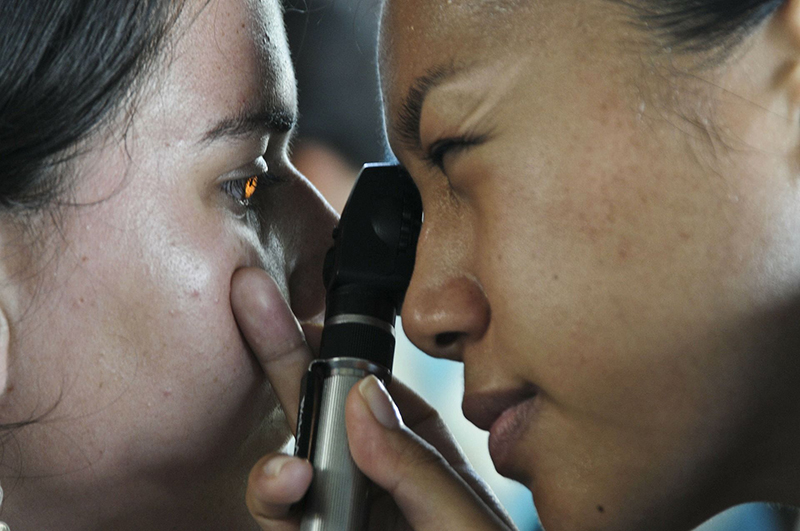
When an individual is over the age of 60 years, they are entitled to free NHS eye checks.
An eye test is not just good for checking whether an individual’s glasses are up-to-date. It's also a vital check on the health of their eyes and to check for eye diseases, such as glaucoma and cataracts, as well as general health problems, including diabetes and high blood pressure.
Older individuals may need more guidance and support with their diet due to age related illnesses such as osteoporosis or other conditions such as diabetes and heart disease. Certain conditions will require dietary modifications and dietary plans may need to be drawn up.
Dietitians carry out an assessment of the service user’s height, weight, and body mass index and weight history. They estimate the service user’s nutritional requirements and assess their current dietary intake, then provide advice and support.
Individuals may have a greater need for restorative dental work as they age; this can be down to general ageing and wear of the teeth, but it can also be due to losing ability to care for one’s own teeth due to loss of mobility or cognitive functioning.
Foot care is essential for older individuals as it lowers the risk of having a fall and reduces the risk of infection as well as relieving pain.
A podiatrist may treat: verrucas, bunions and athlete’s foot etc.
GP surgeries can provide an array of support for older individuals. If they are living in a care home setting, the GP is most likely to make a visit to the setting. They can:
Older individuals can experience mental health issues such as depression. This may be down to many factors. Individuals with advanced stages of dementia may require specialist mental health support.
Health promotion techniques aim to give individuals the knowledge to be able to take control over their own health. This could be through learning about diet, the importance of exercise or managing a health condition. A GP plays a role in health promotion, amongst other healthcare specialists.
Reablement support gives individuals the opportunity and confidence to relearn and regain some of the skills they may have lost because of poor health, disability, or after a spell in hospital. Through this type of support, independence is maximised as is the ability to take control of their own lives.
Pan fydd unigolion dros 60 oed, cynigir archwiliadau llygaid am ddim iddynt gan y GIG.
Yn ogystal â chadarnhau p'un a yw sbectolau unigolyn yn addas o hyd, mae prawf llygaid hefyd yn ffordd hanfodol o archwilio iechyd ei lygaid ac i chwilio am afiechydon sy'n gysylltiedig â'r llygaid, fel glawcoma a chataractau, yn ogystal â phroblemau iechyd cyffredinol, gan gynnwys diabetes a phwysedd gwaed uchel.
Gall fod angen mwy o arweiniad a chymorth ar unigolion hŷn â'u deiet oherwydd achosion o salwch sy'n gysylltiedig ag oedran fel osteoporosis neu gyflyrau eraill fel diabetes a chlefyd y galon. Bydd angen gwneud addasiadau deietegol ar gyfer rhai cyflyrau penodol ac mae'n bosibl y bydd angen llunio cynlluniau deietegol.
Bydd deietegwyr yn cynnal asesiad o daldra, pwysau a indecs màs y corff defnyddiwr y gwasanaeth a'i hanes o ran pwysau. Byddant yn amcangyfrif gofynion maeth defnyddiwr y gwasanaeth ac yn asesu ei ddeiet presennol, gan wedyn roi cyngor a chymorth.
Gall fod mwy o angen gwaith deintyddol adferol ar unigolion wrth iddynt heneiddio; gall hyn fod o ganlyniad i heneiddio cyffredinol ac ôl traul ar y dannedd, ond gall hefyd fod o ganlyniad i golli eu gallu i ofalu am eu dannedd eu hunain o ganlyniad i anawsterau symudedd neu anawsterau o ran eu gweithrediad gwybyddol.
Mae gofal traed yn hanfodol i unigolion hŷn gan ei fod yn lleihau'r risg y byddant yn cwympo ac yn lleihau'r risg o gael haint, yn ogystal â lleddfu poen.
Gall podiatregydd drin: ferwcau, chwyddau a tharwden y traed ac ati.
Gall meddygfeydd gynnig amrywiaeth o gymorth i unigolion hŷn. Os ydynt yn byw mewn cartref gofal, mae'n debygol iawn y bydd meddyg teulu yn ymweld â'r lleoliad. Gall wneud y canlynol:
Gall unigolion hŷn brofi problemau iechyd meddwl fel iselder. Gall hyn fod o ganlyniad i sawl ffactor. Gall fod angen cymorth iechyd meddwl arbenigol ar unigolion â dementia datblygedig.
Mae technegau hybu iechyd yn anelu at sicrhau bod unigolion yn meddu ar y wybodaeth i allu cymryd rheolaeth dros eu hiechyd. Gallai hyn fod drwy ddysgu am ddeiet, pwysigrwydd ymarfer corff neu reoli cyflwr iechyd. Mae gan feddygon teulu, yn ogystal ag arbenigwyr gofal iechyd eraill, ran i'w chwarae wrth hybu iechyd.
Mae cymorth ailalluogi yn rhoi'r cyfle a'r hyder i unigolion ailddysgu ac adennill rhai o'r sgiliau y byddant o bosibl wedi'u colli o ganlyniad i iechyd gwael, anabledd neu'n dilyn cyfnod yn yr ysbyty. Drwy'r math hwn o gymorth, gellir cynyddu annibyniaeth i'r eithaf, yn ogystal â'r gallu i gymryd rheolaeth dros eu bywyd.
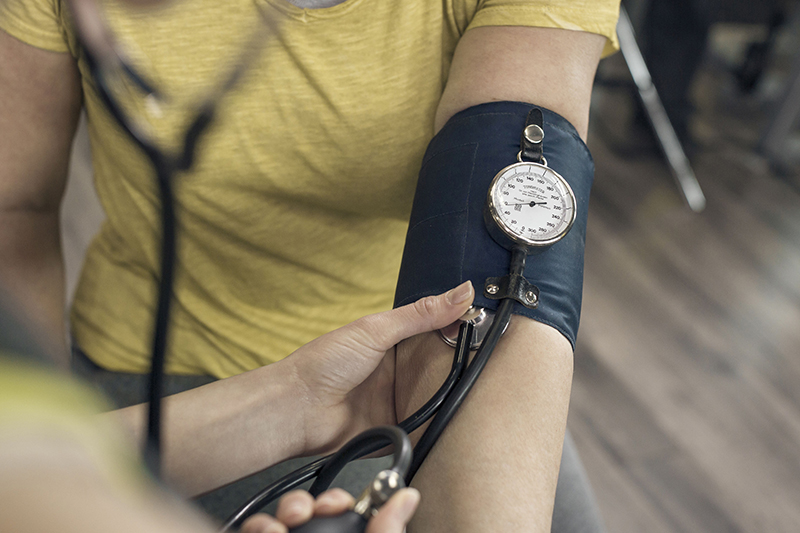
Everyone living in Wales including older people have a number of rights when accessing healthcare.
All individuals in care home settings have the right to access healthcare that meets their needs. Some of this is free, whilst other services have to be paid for.
Individuals should be made aware of which services are available and how they can access them.
The following link provides more information on the Health and Care Standards set out by the Welsh Government:
All individuals should be registered with a GP who can provide basic health care and refer the individual on to more specialist care if required.
Home care staff may be involved in providing support by accompanying the individual to attend their GP, to hospital outpatients appointments and to other healthcare appointments. Alternatively if the individual is unwell a GP is likely to make a visit to the care home setting.
For those that are in a nursing care setting, nursing care is automatically available. This may include:
Other health care services such as chiropody and physiotherapy etc. should also be available, if the individual requires such care.
Mae gan pawb sy’n byw yng Nghymru gan gynnwys pobl hyn nifer o hawliau pan yn defnyddio gwasanaethau gofal iechyd.
Mae gan bob unigolyn mewn cartref gofal yr hawl i gael gafael ar ofal iechyd sy'n diwallu ei anghenion. Mae rhywfaint ohono am ddim, ond rhaid talu am wasanaethau eraill.
Dylid sicrhau bod unigolion yn ymwybodol o ba wasanaethau sydd ar gael a sut y gallant gael gafael arnynt.
Mae’r linc canlynol yn darparu gwybodaeth ar Safonau Iechyd a Gofal Llywodraeth Cymru:
Dylid sicrhau bod pob unigolyn wedi'i gofrestru â meddyg teulu a all ddarparu gofal iechyd sylfaenol a chyfeirio'r unigolyn at ofal mwy arbenigol os bydd angen.
Gall staff cartrefi gofal fod yn rhan o'r broses o ddarparu gofal drwy fynd gyda'r unigolyn i weld ei feddyg teulu, i apwyntiadau fel claf allanol yn yr ysbyty ac i apwyntiadau gofal iechyd eraill. Fel arall, os bydd yr unigolyn yn sâl, mae'n debygol y daw meddyg teulu i'w weld yn y cartref gofal.
Mae gofal nyrsio ar gael yn awtomatig i'r rheini mewn cartrefi nyrsio. Gallai hyn gynnwys:
Dylai gwasanaethau gofal iechyd eraill, fel gofal traed a ffisiotherapi ac ati, hefyd fod ar gael, os bydd angen gofal o'r fath ar yr unigolyn.
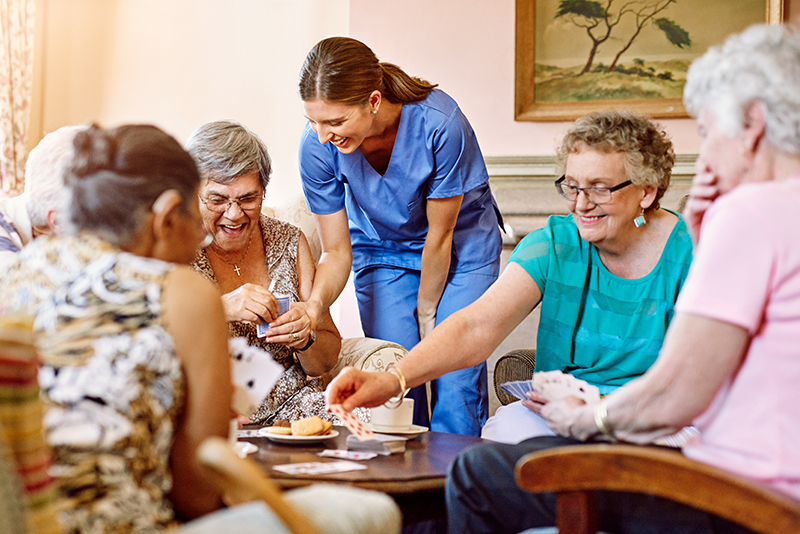
The impact of losing independence, mobility and skills can vary from person to person, with some coping far better than others.
Losing independence can make an individual feel disempowered and as though they have no control over their lives. Not being able to do the smallest things that most take for granted such as tying up shoe laces or washings oneself can have detrimental effects on an individual’s self-esteem and confidence levels. This may prevent an individual from trying, therefore, they give up and become helpless.
Poor mobility can affect the physical body and may cause muscle wasting and possible weight loss, or weight gain due to not being able to move around. Poor mobility may also cause an individual to stay seated in the same position for long periods of time, creating boredom and even pressure sores. Poor mobility can also be a danger as individuals may struggle to move around safely and the risk of falling is increased.
Certain skills can be lost due to the ageing process. Skills such as motor coordination, which can lead to problems in walking, including the ability to maintain a uniform gait and balance. Falls due to a loss of balance and motor coordination are a major cause of serious injuries in older individuals.
Other skills that decline in older individuals are the processing speed of information, memory and problem solving. When presented with new information or task older individuals may struggle. This can cause frustration and anger and in some cases, it may stop an individual from attempting new tasks.
Gall effaith colli annibyniaeth, symudedd a sgiliau amrywio o berson i berson, ac mae rhai yn ymdopi'n llawer gwell nag eraill.
Gall colli annibyniaeth wneud i unigolyn deimlo'n ddiymadferth, fel nad oes ganddo unrhyw reolaeth dros ei fywyd. Gall peidio â gallu gwneud y tasgau lleiaf, y mae'r rhan fwyaf ohonom yn eu cymryd yn ganiataol, fel clymu careiau neu ymolchi, gael effaith negyddol ar hunan-barch a hyder unigolyn. Gall hyn atal unigolyn rhag rhoi cynnig arni, a thrwy hynny roi'r gorau i ymdrechu a dod yn ddiymadferth.
Gall symudedd gwael effeithio ar y corff a gall achosi i gyhyrau ddirywio ac o bosibl at golli pwysau, neu fagu pwysau, am nad yw'r unigolyn yn gallu symud o gwmpas. Gall symudedd gwael hefyd olygu y bydd unigolyn yn aros ar ei eistedd yn yr un lleoliad am gyfnodau hir o amser, gan greu diflastod a hyd yn oed friwiau pwyso. Gall symudedd gwael hefyd fod yn beryglus oherwydd gall unigolion ei chael hi'n anodd symud o gwmpas yn ddiogel a cheir risg uwch o gwympo.
Caiff rhai sgiliau eu colli o ganlyniad i'r broses heneiddio. Sgiliau fel cydsymud echddygol, a all arwain at broblemau wrth gerdded, gan gynnwys y gallu i sefyll yn llonydd a chydbwyso. Mae cwympo o ganlyniad i golli cydbwysedd a chydsymudiad echddygol yn ffactor sylweddol o ran anafiadau difrifol i unigolion hŷn.
Mae sgiliau eraill sy'n dirywio ymhlith unigolion hŷn yn cynnwys cyflymder prosesu gwybodaeth, y cof a'r gallu i ddatrys problemau. Pan gyflwynir gwybodaeth neu dasg newydd iddynt, gall unigolion hŷn ei chael hi'n anodd. Gall hyn achosi rhwystredigaeth a dicter ac mewn rhai achosion, gall atal unigolyn rhag rhoi cynnig ar dasgau newydd.

Movement in old age is important. Individuals that are sedentary have higher rates of falls, obesity, heart disease and early death compared with the general population.
Physical decline is associated with lack of physical activity. Without regular exercise, individuals can experience a range of health problems and if individuals do not stay mobile, then the general things that they do may become harder, such as making a cup of tea or getting dressed.
Reduced muscle mass due to lack of movement can contribute to fatigue, weakness and reduced tolerance to exercise, which could in turn make it difficult for individuals to move about.
If there is little movement then strength declines and if this is persistent and long-term an individual is unlikely to be steady and balanced on their feet.
Lack of movement also reduces coordination and balance. This can be corrected though gentle exercise and can reduce the likelihood of falls.
Researchers now suggest that many factors associated with ageing are due to inactivity, and that performing physical activity can help to reduce or reverse the risk of disability and chronic disease.
Mae symud yn bwysig wrth heneiddio. Mae gan unigolion sy'n eisteddog gyfraddau uwch o ran cwympo, gordewdra, clefyd y galon a marwolaeth gynnar o gymharu â'r cyhoedd yn gyffredinol.
Mae dirywiad corfforol yn gysylltiedig â diffyg ymarfer corff. Heb ymarfer corff rheolaidd, gall unigolion brofi amrywiaeth o broblemau iechyd ac os na fydd unigolyn yn symud yn rheolaidd, yna mae'n bosibl y daw'r pethau cyffredinol a wnânt yn anos, fel gwneud cwpanaid o de neu wisgo.
Gall màs cyhyrau is oherwydd diffyg symudiad gyfrannu at flinder, gwendid a lefel goddefgarwch is at ymarfer corff, a allai yn ei dro ei gwneud hi'n anodd i unigolion symud o gwmpas.
Os na fydd llawer o symudiad, yna bydd cryfder yr unigolyn yn dirywio, ac os bydd y sefyllfa yn parhau am gyfnod hir, nid yw'r unigolyn yn debygol o fod yn gadarn nac yn gytbwys ar ei draed.
Mae diffyg symud hefyd yn lleihau cydsymudiad a chydbwysedd. Gellir cywiro hyn drwy wneud ymarfer corff ysgafn a gall leihau'r tebygolrwydd y bydd yr unigolyn yn cwympo.
Mae ymchwilwyr bellach yn awgrymu bod llawer o'r ffactorau sy'n gysylltiedig â heneiddio yn deillio o anweithgarwch, ac y gall ymgymryd ag ymarfer corff helpu i leihau neu wrthdroi'r risg y bydd unigolyn yn dioddef o anabledd ac afiechyd cronig.
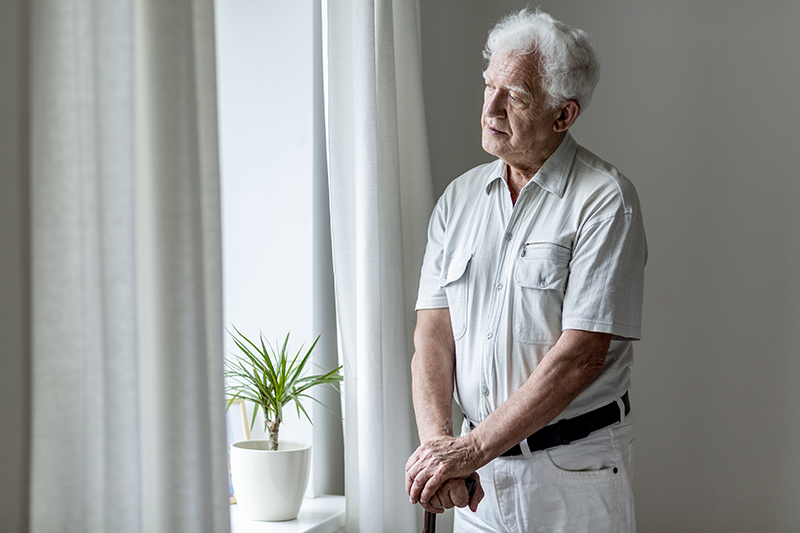
The layout of care home settings is very important as the layout needs to support independence, particularly for those with dementia and mobility issues.
Rooms should facilitate natural light, so individuals can see where they are going and do not trip up.
Introducing clear signage can help direct individuals to certain aspects of the room or building. This can allow for more independence, rather than them feeling the need to ask if they are unsure of where something is.
Any avoidable hazards, such as leads should be removed to prevent trips and falls.
Colour-coding or giving the various levels or areas within rooms a theme can aid individuals with direction, which can reduce the likelihood of disorientation.
There are different forms of equipment available that can help to prevent individuals from falling, this includes: electronic assistive technology, personalised communication support, adaptations to the environment, visual aids, hearing aids, mobility aids.
Electronic assistive technology is an enablement device that helps individuals with physical impairments to compensate for or alleviate an injury, handicap or illness or to replace a physical function. Technology can include powered wheelchairs so that they can have a level of movement independently, or environmental control systems, which enable them to turn on the TV, close the curtains and so on without the risk of falling.
Making small adaptions within a care setting or home can reduce the likelihood of falls significantly. Adaptations could include hand rails to hold on to whilst walking, or a bath chair in order for individuals to lower themselves into the bath, rather than climb into the bath.
Visual aids can be used to highlight uneven flooring and to urge individuals to take care or if someone has just washed the floor and slipping is likely.
Mobility aids can include stairlifts, walking frames and walking sticks etc. they can support older individuals to move independently whilst reducing the risk of falling.
Mae cynllun cartrefi gofal yn bwysig iawn gan fod angen iddo gefnogi annibyniaeth, yn enwedig i'r rheini â dementia ac anawsterau symudedd.
Dylai ystafelloedd fanteisio ar olau naturiol, er mwyn i unigolion allu gweld ble y maent yn mynd ac osgoi baglu.
Gall cyflwyno arwyddion clir helpu i gyfeirio unigolion tuag at agweddau penodol ar yr ystafell neu'r adeilad. Gall hyn gynnig mwy o annibyniaeth, yn hytrach na sefyllfa lle y byddant yn teimlo bod angen iddynt ofyn os ydynt yn ansicr o leoliad rhywbeth.
Dylid cael gwared ar unrhyw beryglon y gellir eu hosgoi, fel gwifrau, er mwyn atal unigolion rhag baglu a chwympo.
Gall defnyddio codau lliw neu ddefnyddio thema ar gyfer yr amrywiol lefelau neu ardaloedd o fewn ystafelloedd helpu i lywio unigolion, a all leihau'r tebygolrwydd y byddant yn drysu.
Mae gwahanol fathau o gyfarpar ar gael a all helpu i atal unigolion rhag cwympo, gan gynnwys y canlynol: technoleg gynorthwyol electronig, cymorth cyfathrebu personol, addasiadau i'r amgylchedd, cymhorthion gweledol, cymhorthion clyw, cymhorthion symudedd.
Dyfais alluogi yw technoleg gynorthwyol electronig sy'n helpu unigolion â namau corfforol i wneud iawn am anaf, anabledd neu salwch neu ei liniaru, neu gymryd lle gweithrediad corfforol. Gall y dechnoleg hon gynnwys cadeiriau olwyn trydanol er mwyn iddynt allu symud yn annibynnol, neu systemau rheoli'r amgylchedd, sy'n galluogi pobl i droi'r teledu ymlaen, cau'r llenni ac ati heb y risg o gwympo.
Gall gwneud addasiadau bach mewn cartref neu leoliad gofal leihau'r tebygolrwydd o gwympo yn sylweddol. Gallai addasiadau gynnwys canllawiau i'w dal wrth gerdded, neu gadair ar gyfer y bath fel y gall unigolion ostwng eu hunain i mewn i'r bath, yn hytrach na gorfod dringo i mewn iddo.
Gall cymhorthion gweledol gael eu defnyddio i dynnu sylw at loriau anwastad ac i annog unigolion i fod yn ofalus os oes rhywun newydd olchi'r llawr a bod siawns uchel o lithro.
Gall cymhorthion symudedd gynnwys lifftiau grisiau, fframiau cerdded a ffyn cerdded ac ati. Gallant helpu unigolion hŷn i symud yn annibynnol, gan hefyd leihau'r risg y byddant yn cwympo.
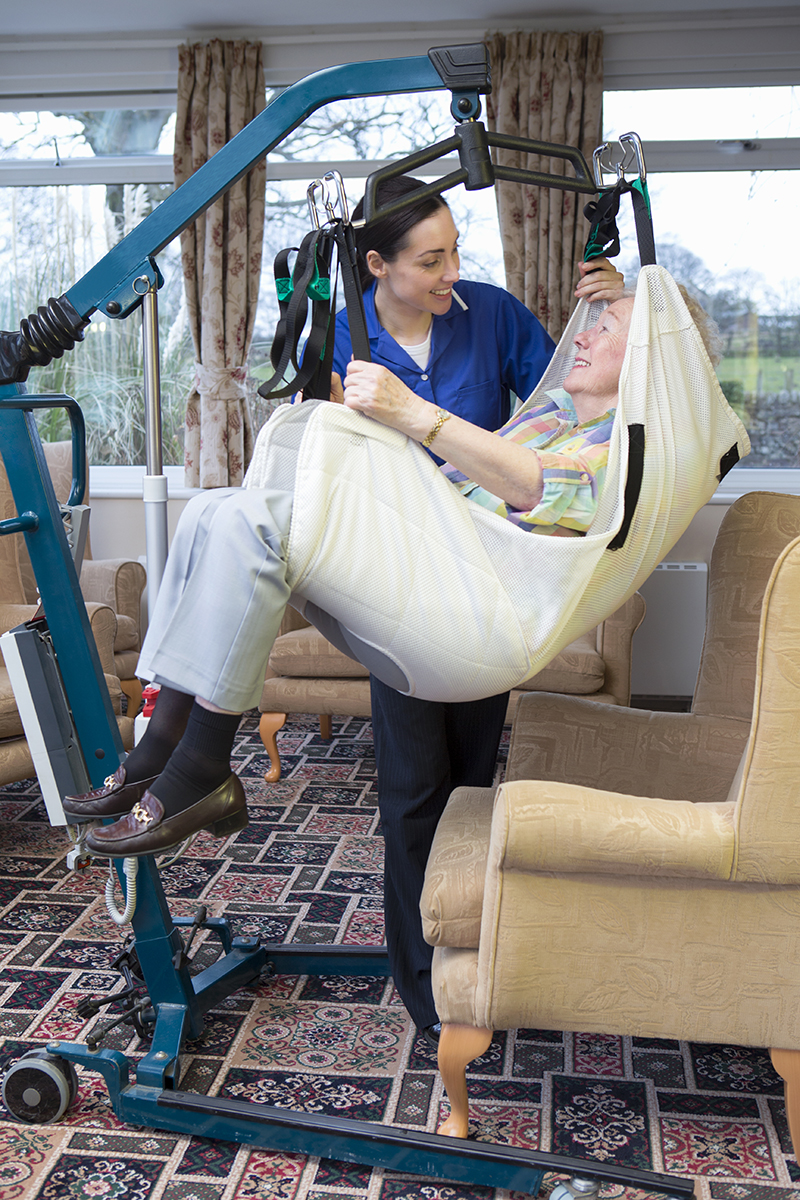
An aid is a form of help or support to be of assistance to someone in order for them to achieve something. Adaptations are changes made to the home to make it easier, safer and more comfortable to live in.
Adaptations range from putting up grab rails or adding ramps or wide doors for wheelchairs, to installing specially designed shower and toilet facilities, or changing the design of the home to make it more dementia friendly.
Aids can include memory aids for helping people to remember the date, appointments and other things which include noticeboards where people can write messages and reminders, and clocks with large faces that are easier to read. This can help individuals to take charge of their days.
Using aids and adaptations within care home settings can allow individuals to do things for themselves for longer. This can be basic daily living tasks that most of us take for granted and can include climbing the stairs, making a cup of tea or being able to shower or bath independently.
Many aids and adaptations support safety and are specifically designed with safety in mind. Some individuals may have difficulty getting into and out of baths, or problems sitting down or standing up from the bottom of the bath tub. Various hoists are available which use pulleys to lower and raise a person into and out of a bath and bath seats and bath boards, which lay across the top of the bathtub, allowing a person to sit. These aids can make bathing independently much safer.
Being able to do things independently can increase an individual’s self-esteem as they are being given more choices about the things they can do for themselves. Having a choice is crucial to empowerment and by being empowered, the individual has greater control over their own life and this is likely to contribute to good mental well-being.
Aids and adaptions can support physical well-being as well, as the aids can support physical mobility, therefore increasing the likelihood of movement on a regular basis.
Mae cymhorthion yn cynnig help neu gymorth i rywun er mwyn i'r unigolyn hwnnw gyflawni rhywbeth. Ystyr addasiadau yw newidiadau a wneir i'r cartref i'w gwneud hi'n haws, yn fwy diogel ac yn fwy cyfforddus i'r unigolyn fyw yno.
Mae addasiadau yn amrywio o osod canllawiau neu ychwanegu rampiau neu ddrysau llydan ar gyfer cadeiriau olwyn, i osod cyfleusterau cawod a thoiled wedi'u cynllunio'n arbennig, neu newid dyluniad y cartref er mwyn sicrhau ei fod yn fwy cyfeillgar i unigolyn â dementia.
Gall cymhorthion gynnwys cymhorthion cof er mwyn helpu pobl i gofio'r dyddiad, apwyntiadau a phethau eraill, sy'n cynnwys hysbysfyrddau lle y gall pobl ysgrifennu negeseuon a nodiadau atgoffa, a chlociau â wynebau mawr sy'n haws eu darllen. Gall hyn helpu unigolion i gymryd rheolaeth dros eu diwrnod.
Gall defnyddio cymhorthion ac addasiadau mewn cartrefi gofal alluogi unigolion i wneud pethau drostynt eu hunain am gyfnod hwy. Gall hyn gynnwys tasgau bywyd cyffredin sylfaenol y mae'r rhan fwyaf ohonom yn eu cymryd yn ganiataol a gall gynnwys dringo'r grisiau, gwneud cwpanaid o de neu allu cael cawod neu fath yn annibynnol.
Mae llawer o gymhorthion ac addasiadau yn cefnogi diogelwch ac wedi'u cynllunio'n benodol gan ystyried diogelwch. Gall rhai unigolion ei chael hi'n anodd mynd i mewn i'r bath a dod allan o'r bath, neu gael problemau wrth eistedd neu sefyll o waelod y bath. Mae amrywiol ddyfeisiau codi ar gael sy'n defnyddio pwlïau (pulleys) i ostwng a chodi person i mewn ac allan o'r bath, a cheir seddau a byrddau y gellir eu gosod ar draws y bath er mwyn helpu'r unigolyn i eistedd. Gall y cymhorthion hyn ei gwneud hi'n llawer mwy diogel iddynt gael bath ar eu pen eu hunain.
Gall y gallu i wneud pethau'n annibynnol gynyddu hunan-barch unigolyn gan y bydd yn cael mwy o ddewis o ran y pethau y gall eu gwneud drosto'i hun. Mae cael dewis yn hanfodol o ran grymuso unigolion a thrwy gael eu grymuso, rhoddir mwy o reolaeth iddynt dros eu bywyd, sy'n debygol o gyfrannu at lesiant meddwl da.
Gall cymhorthion ac addasiadau gefnogi llesiant corfforol hefyd, gan y gall y cymhorthion gefnogi symudedd corfforol, a thrwy hynny gynyddu'r tebygolrwydd y bydd yr unigolyn yn gallu symud yn rheolaidd.

Chronic pain is unfortunately a reality for many older individuals. Ensuring that individuals suffering from pain have the right help and medication can reduce their suffering and improve their quality of life.
Watching older individuals body language for signs of pain can help to identify issues quickly; this may be more of a need for individuals with dementia or those that have difficulties communicating.
Having a good diet will help the way many pain medications work and can help to reduce any unwanted side effects of the medication.
Any medication that is required, should be given at the required time and at the required dosage, in line with the prescription guidance.
Exercise can also help to decrease pain if individuals have pain related conditions such as arthritis as it increases strength and flexibility, reduces joint pain, and helps combat fatigue. Care professionals should provide exercises that an individual can do and then gradually build upon these.
Regularly moving can help to decrease discomfort. If the individual is bed bound, they need to be turned regularly to prevent pressure sores and allow the blood circulation to flow.
Yn anffodus, mae poen cronig yn realiti i lawer o unigolion hŷn. Gall sicrhau bod unigolion sy'n dioddef poen yn cael yr help a'r feddyginiaeth gywir leihau eu dioddefaint a gwella ansawdd eu bywyd.
Gall gwylio iaith corff unigolion hŷn am arwyddion o boen helpu i nodi problemau yn gyflym; gall fod angen gwneud hyn fwy ar gyfer unigolion â dementia neu'r rheini sy'n ei chael hi'n anodd cyfathrebu.
Bydd sicrhau deiet da yn helpu llawer o feddyginiaethau poen i weithio a gall helpu i leihau unrhyw sgil-effeithiau annymunol sy'n gysylltiedig â'r feddyginiaeth.
Dylid rhoi unrhyw feddyginiaeth sydd ei hangen ar yr amser gofynnol ac yn unol â'r ddogn ofynnol, gan ddilyn canllawiau'r presgripsiwn.
Gall ymarfer corff hefyd helpu i leihau poen os bydd gan unigolion gyflyrau sy'n gysylltiedig â phoen fel arthritis gan ei fod yn cynyddu cryfder a hyblygrwydd, yn lleihau poen yn y cymalau ac yn helpu i drechu blinder. Dylai gweithwyr gofal proffesiynol ddarparu ymarferion y gall yr unigolyn eu gwneud, ac wedyn eu datblygu'n raddol.
Gall symud yn rheolaidd helpu i leihau anesmwythder. Os bydd yr unigolyn yn gaeth i'r gwely, bydd angen ei droi'n rheolaidd er mwyn atal briwiau pwyso a chaniatáu i'r gwaed gylchredeg.
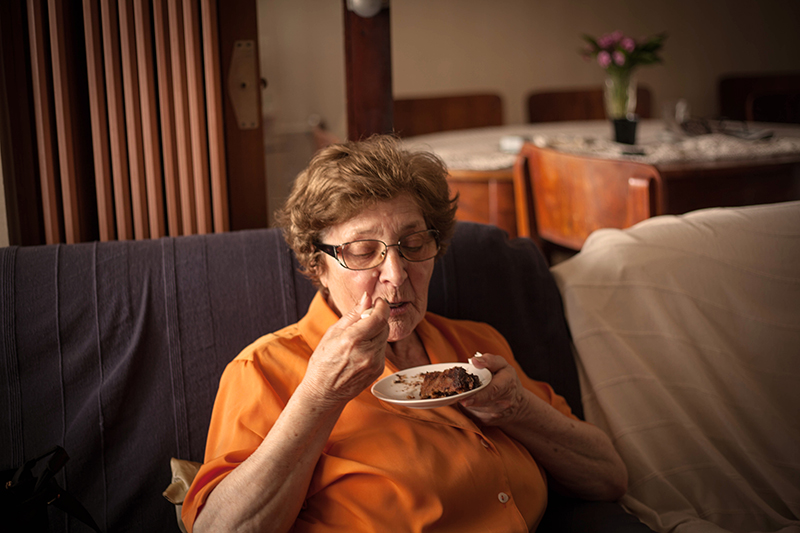
Older individuals that have difficulties eating because of swallowing, dental issues or mouth chewing problems and particular care would need to be taken so that they do not choke. Taking this into consideration, they may struggle to eat certain foods.
Older individuals may also have a small appetite and eat too little food and if not managed correctly, they may be at risk of undernutrition.
Dysphagia or difficulties swallowing is a common problem in older people. This can cause difficulties eating. Signs of dysphagia are:
A GP or specialist dysphagia nurse can help as this can cause problems for people when eating and drinking and can lead to poor nutrition.
Before eating, care professionals should ensure that good hygiene is practiced and that hands are washed before eating each meal. This is to prevent any bacteria that could cause illness from being spread.
If older individuals have false teeth, they should be comfortable and well-fitting, they should look good and should allow the bearer to bite and chew all types of food. Dentures should be replaced once every five years. This is because the shape of the mouth changes over time and if someone loses a lot of weight the dentures won’t fit properly.
For those with swallowing difficulties, food may need to be pureed, which will reduce the likelihood of them choking.
Individuals with dementia may also be unable to use cutlery, or may find it difficult to use cutlery, or to unwrap or unpeel items, or to get food to their mouth. If so, they may need gentle support to allow them to remain independent in eating.
Drinks given to individuals should not be scalding hot as they may spill the drink and burn themselves. Beakers may also be preferable for some as they are then still able to drink independently.
Gall fod gan unigolion hŷn anawsterau wrth fwyta oherwydd problemau llyncu, materion deintyddol neu broblemau wrth gnoi bwyd, a byddai angen cymryd gofal penodol er mwyn sicrhau na fyddant yn tagu. Gan ystyried hyn, mae'n bosibl y byddant yn ei chael hi'n anodd bwyta rhai bwydydd penodol.
Mae'n bosibl na fydd gan unigolion hŷn lawer o chwant bwyd ac na fyddant yn bwyta digon, ac os na chaiff hyn ei reoli'n briodol, gall fod perygl na fyddant yn cael digon o faeth.
Mae dysffagia neu drafferthion wrth lyncu yn broblem gyffredin ymysg pobl hŷn. Gall hyn achosi trafferthion wrth fwyta. Arwyddion o ddysffagia yw:
Gall meddyg teulu neu nyrs dysffagia arbenigol helpu, gan fod hyn yn medru creu problemau i bobl wrth fwyta ac yfed ac yn medru arwain at faethiad gwael.
Cyn bwyta, dylai gweithwyr gofal proffesiynol sicrhau arferion hylendid da, gan sicrhau y caiff dwylo eu golchi cyn bwyta pob pryd bwyd. Gwneir hyn er mwyn atal unrhyw facteria a allai achosi salwch rhag lledaenu.
Os bydd gan unigolion hŷn ddannedd gosod, dylid sicrhau eu bod yn gyfforddus a'u bod yn eu ffitio'n briodol. Dylent edrych yn iawn a dylai'r unigolyn sy'n eu gwisgo allu cnoi a bwyta pob math o fwyd. Dylid cael dannedd gosod newydd unwaith bob pum mlynedd. Mae hyn gan fod siâp y geg yn newid dros amser ac os bydd rhywun yn colli llawer o bwysau, ni fydd y dannedd gosod yn ffitio'n iawn.
Gall fod angen stwnshio bwyd i'r rheini ag anawsterau llyncu er mwyn lleihau'r tebygolrwydd y byddant yn tagu.
Efallai na fydd unigolion â dementia yn gallu defnyddio cyllyll a ffyrc ac ati, neu y byddant yn ei chael hi'n anodd gwneud hynny, neu efallai na fyddant yn gallu agor eitemau, neu gael bwyd i mewn i'w ceg. Os felly, mae'n bosibl y bydd angen rhywfaint o gymorth ysgafn arnynt er mwyn iddynt allu parhau i fwyta'n annibynnol.
Ni ddylid rhoi diodydd chwilboeth i unigolion gan y gallent ollwng y ddiod a llosgi eu hunain. Mae'n bosibl y byddai'n well defnyddio biceri er mwyn iddynt allu yfed yn annibynnol o hyd.
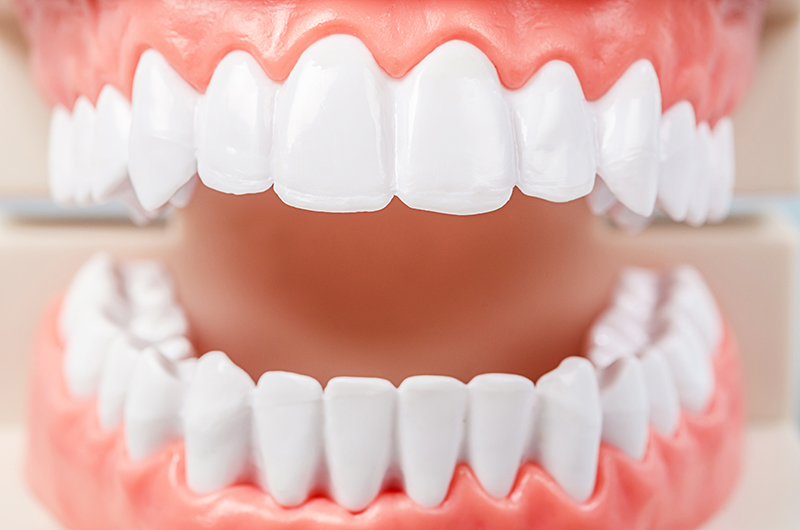
As individuals age, their gums are more likely to recede back, and teeth can become more sensitive as a result. There is more of a risk of decay at the gum edge when the gum has receded, as the neck of the tooth is not protected by enamel.
To prevent tooth decay, care professionals should support older individuals to brush teeth well to help remove the build-up of plaque first thing in the morning and last thing at night. For individuals with dementia or who have limited movement, this may need to be done for them.
Sugar and sweet foods should be limited and not overconsumed as this can increase the rate of decay.
For those with dentures, they should be removed and rinsed after eating to remove any leftover food. Dentures should be brushed and left to soak overnight in water, or denture cleaner. Once the dentures have been removed, the individual would need to either have their gums brushed or if they can do it themselves, be supported to do so.
Wrth i unigolion heneiddio, mae eu deintgig yn fwy tebygol o gilio, a gall y dannedd ddod yn fwy sensitif o ganlyniad i hynny. Mae mwy o risg y bydd y dannedd yn pydru wrth ymyl y deintgig pan fydd y deintgig wedi cilio, gan nad oes enamel yn diogelu gwddf y dant.
Er mwyn atal dannedd rhag pydru, dylai gweithwyr gofal proffesiynol helpu unigolion hŷn i frwsio eu dannedd yn dda er mwyn helpu i gael gwared ar unrhyw blac sydd wedi cronni, a hynny peth cyntaf yn y bore a pheth olaf gyda'r nos. Mae'n bosibl y bydd angen gwneud hyn ar ran unigolion â dementia neu unigolion â symudedd cyfyngedig.
Dylid cyfyngu ar losin a bwydydd melys ac ni ddylid bwyta gormod ohonynt gan y gall hyn gynyddu cyfradd unrhyw bydredd.
Dylai'r rheini â dannedd gosod eu tynnu allan a'u golchi ar ôl bwyta er mwyn cael gwared ar unrhyw fwydydd dros ben. Dylid brwsio'r dannedd gosod a'u gadael mewn dŵr, neu hylif glanhau dannedd gosod, dros nos. Unwaith y bydd yr unigolyn wedi tynnu ei ddannedd gosod, byddai angen brwsio ei ddeintgig neu os gall wneud hynny ei hun, ei helpu i wneud hynny.

A positive dining experience is important for older individuals just as it is important for individuals in other life stages.
Sitting at the table with other people is a social activity which can help individuals form relationships with other people living in the home. Meal times can often be a highlight of peoples day, particularly if they have poor mobility and unable to do the things they used to do.
A positive dining experience can entail:
A welcome and accessible environment can encourage individuals to eat as it can make them feel relaxed. The environment needs to be accessible for all individuals within the setting and this includes those with walking frames and wheelchairs.
When food is presented well and looks good then it is more likely that the food will be eaten.
Portion size will depend on the individual eating the meal. Some may be put-off by large portions, whereas others may be insulted by small portions. Good portion sizes help individuals to get the nutrients that they need, in the required amounts.
Balanced meals help individuals to get their required daily nutrients.
For older individuals taste buds decline so using stronger flavours and making the food tasty is important.
Helping to prepare the food that is being served, helping to select menus and helping to set tables is all part of the home from home experience and can make individuals feel as though they have had a role in the process.
Mae profiad bwyta cadarnhaol yr un mor bwysig i unigolion sy’n hŷn yn union fel y mae i unigolion yn ystod cyfnodau eraill o fywyd.
Mae eistedd wrth y bwrdd gyda phobl eraill yn weithred gymdeithasol sy’n medru helpu unigolion i ffurfio perthnasoedd gyda phobl eraill sy’n byw yn y cartref. Yn aml gall amseroedd bwyd fod yn uchafbwynt y dydd i bobl, yn enwedig os oes ganddynt symudedd gwael ac nad ydynt yn gallu gwneud y pethau roedden nhw’n arfer eu gwneud.
Gall profiad bwyta cadarnhaol olygu y canlynol:
Gall amgylchedd croesawgar a hygyrch annog unigolion i fwyta gan y gall eu helpu i ymlacio. Mae angen i'r amgylchedd fod yn hygyrch i bob unigolyn yn y lleoliad, gan gynnwys y rheini â fframiau cerdded a chadeiriau olwyn.
Pan gaiff bwyd ei gyflwyno mewn ffordd ddeniadol ac atyniadol, mae'n fwy tebygol y caiff y bwyd ei fwyta.
Bydd maint y pryd bwyd yn dibynnu ar yr unigolyn sy'n bwyta'r pryd bwyd hwnnw. Mae'n bosibl na fydd rhai am weld prydau mawr, ond mae'n bosibl y bydd eraill yn teimlo sarhad os cyflwynir pryd bwyd bach iddynt. Mae prydau o faint da yn helpu unigolion i gael y maetholion sydd eu hangen arnynt, a'r symiau gofynnol ohonynt.
Mae prydau bwyd cytbwys yn helpu unigolion i gael y maetholion sydd eu hangen arnynt bob dydd.
Mae blasbwyntiau unigolion hŷn yn dirywio felly mae'n bwysig defnyddio blasau cryfach a sicrhau bod y bwyd yn flasus.
Mae helpu i baratoi'r bwyd a gaiff ei weini, helpu i ddewis bwydlenni a helpu i osod y bwrdd oll yn rhan o'r profiad 'cartref oddi cartref', a gall wneud i unigolion deimlo eu bod yn rhan o'r broses.